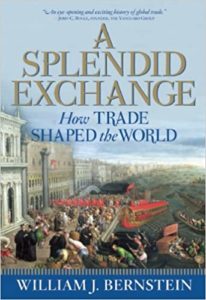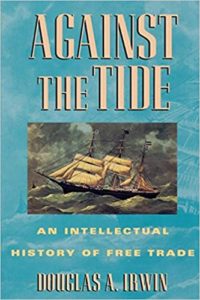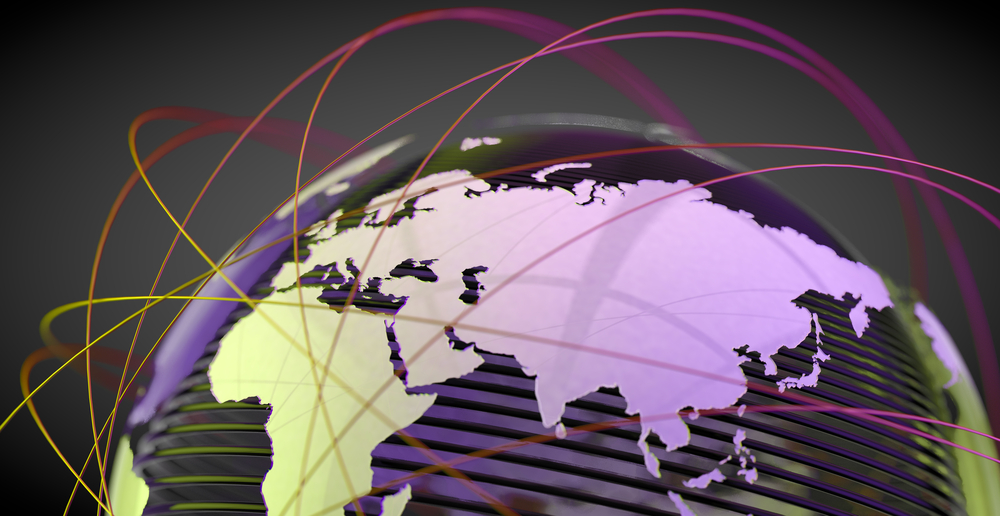Free Trade
An Economics Reading List
Bastiat, Frederic, Economic Sophisms
Bastiat is free trade’s greatest popularizer. This book collects his principal essays exposing the flaws that infect all arguments against free trade. This book contains dozens of Bastiat’s most lively essays. If you are looking for just one to sample, try his classic candle-making satire: Chapter 7, A Petition.
Each essay is short, witty, clear, and focused on a particular fallacy. Bastiat’s critique of dozes of arguments for tariffs and other import restrictions is devastating. Economic Sophisms also provides a superb lesson in persuasive writing. Noted for his mastery of the reductio ad absurdum, Bastiat excelled across the board in writing both to persuade and to teach.

Bernstein, William, A Splendid Exchange: How Trade Shaped the World
A sweeping narrative history of world trade—from Sumer in 3000 BC to the firestorm over globalization today—that brilliantly explores trade’s colorful and contentious past and provides fresh insights into social, political, cultural, and economic history, as well as a timely assessment of trade’s future.
See also Bernstein’s EconTalk interview on this title.
Clausing, Kimberly, Open: The Progressive Case for Free Trade, Immigration, and Global Capital
Globalization has a bad name. Critics on the Left have long attacked it for exploiting the poor and undermining labor. Today, the Right challenges globalization for tilting the field against advanced economies. Kimberly Clausing faces down the critics from both sides, demonstrating in this vivid and compelling account that open economies are a force for good, not least in helping the most vulnerable.
See also Clausing’s EconTalk interview on this title.
George, Henry, Protection or Free Trade
In this book, first published in 1890, the author endeavours to determine whether protectionism or free trade better accords with the interests of labour – particularly with regards to the raising of wages. He analyses the popularity of protection in the face of the evidence of its fallacies, and examines the principle of free trade and its consequences.
See also Charles Hooper’s Liberty Classic on this title, Henry George’s Protection or Free Trade: A Critical Review.
Hume, David, Essays, Moral, Political, and Literary, (Part II was originally published as Political Discourses)

Irwin, Douglas, Against the Tide: An Intellectual History of Free Trade
-
- This is book is not so much a brief for free trade as it is a scholarly survey of the history of
- economic thought on the topic. Irwin’s book uncovers the contexts, the motivations, and the trains of thought that led economists to develop the case for free trade.
-
- To truly understand the case for free trade requires knowledge of the development of the economic theories supporting free trade—as well as of those theories in opposition to free trade- and of the historical context of those theories. Irwin lucidly reviews all these.
Johnson, Harry, Aspects of the Theory of Tariffs
Leggett, William, Democratick Editorials, particularly Part V, The Principles of Free Trade.
Nye, John, Wine, War, and Taxes.
Nye debunks the myth that Britain was a free-trade nation during and after the industrial revolution, by revealing how the British used tariffs―notably on French wine―as a mercantilist tool to politically weaken France and to respond to pressure from local brewers and others. The book reveals that Britain did not transform smoothly from a mercantilist state in the eighteenth century to a bastion of free trade in the late nineteenth.
See also Nye’s EconTalk interview on this title.
Paul, Ellen Frankel, “Laissez Faire in Nineteenth-Century Britain: Fact or Myth?” Literature of Liberty, 1980. Brief Review
Ricardo, David, On the Principles of Political Economy and Taxation Brief Review
Roberts, Russell, The Choice: A Fable of Free Trade and Protectionism.
-
- This book provides a powerful case for free trade—the most powerful and persuasive case written during the past century and a half. It achieves this goal on at least two different levels. First, the writing is crystal clear. Roberts teaches almost all of a basic course on international trade economics in just over 100 pages of engaging, charming, and compelling text.
See also our Reading Guide for this tile here.
Say, Jean Baptiste, A Treatise on Political Economy
Taussig, Frank W., Some Aspects of the Tariff Question, 1915
-
- Debates about free trade between opposing parties often deteriorate into frustration because of a lack of facts. Frank Taussig clarified the debates with an open mind, and confronted such questions as comparative advantage, protectionism, the “young” or “infant industry argument,” and dumping. He fearlessly summarized the economic issues on both sides, and then meticulously analyzed the history of three heavily protected industries: sugar, iron and steel, and textiles to see how the facts contributed to these economic debates.
Taussig’s combination of careful-yet-entertaining-to-read research is both inspiring and convincing. In only one small case, that of a limited portion of the silk industry, can the facts be construed as supporting protectionism in any form (in this case, the infant-industry argument). The moral of his many case studies was that what the United States does well is to invent time- and labor-saving machines (does the computer revolution of the latter 1900s ring a bell?); and that these advances were the results of comparative advantage, not protection of young industries or a young nation. Taussig’s enthusiastic research remains a model of what industry studies in economics should be: not mere tales of this or that company or technological advance, but fascinating presentations that filter through the morass of history, politics, and data to address the economic questions at hand.
Additional works of interest:
The Online Library of Liberty’s Free Trade Collection
Russ Roberts on Smith, Ricardo, and Trade
Russ Roberts, host of EconTalk, does a monologue this week on the economics of trade and specialization. Economists have focused on David Ricardo’s idea of comparative advantage as the source of specialization and wealth creation from trade. Drawing on Adam Smith and the work of James Buchanan, Yong Yoon, and Paul Romer, Roberts argues that we’ve neglected the role of the size of the market in creating incentives for specialization and wealth creation via trade. Simply put, the more people we trade with, the greater the opportunity to specialize and innovate, even when people are identical.
“Tariff,” an article in the 11th edition of the Encyclopedia Britannica by Frank W. Taussig
John Stuart Mill: Various works. The infant-industry (“young industry”) argument Taussig addressed was first articulated by Mill. See, in particular, Mill’s Principles.
Helen Brooke Taussig, Frank Taussig’s daughter Helen was as famous as he was. Read about her research and unraveling of the “blue baby syndrome.”

